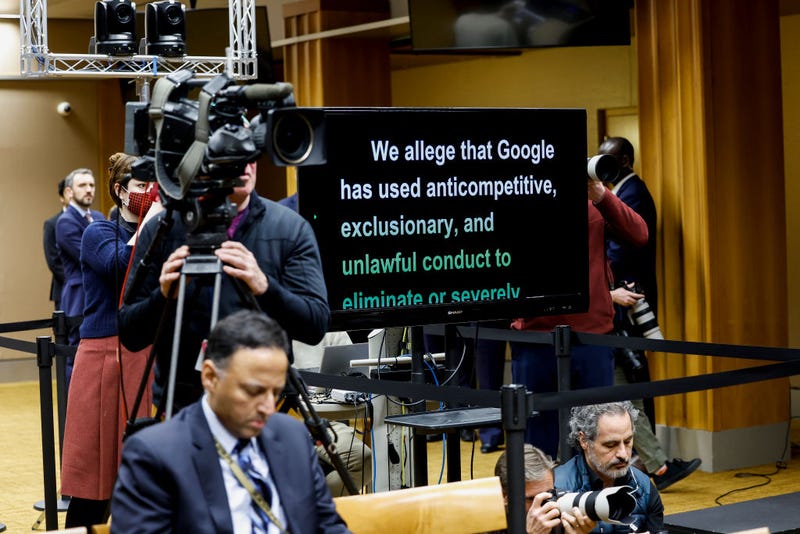
This week, the U.S. Department of Justice filed a “civil antitrust suit against Google for monopolizing multiple digital advertising technology products,” along with the Attorneys General of California and several other states.
If the DOJ wins, what could change?
“By reducing the dominance of Google, the hope is that new search engines are going to show up for privacy-concerned people that want to look for other types of search engines for specific types of consumers or search engines that target specific products,” economics professor Fernando Luco of Texas A&M University explained.
According to the Justice Department, Google’s alleged monopoly violates Sections 1 and 2 of the Sherman Act.
Its complaint, which was filed Tuesday in the U.S. District Court for the Eastern District of Virginia, describes Google’s “ad tech stack” of digital advertising technologies that both web publishers and advertisers depend on. Per the complaint, Google allegedly “engaged in a course of anticompetitive and exclusionary conduct” over the past 15 years.
“The process in which Big Tech companies acquire start-ups and eliminate the competition is called ‘killer acquisitions,’” Luco said. “This will damage consumers because the acquisition is done to kill an idea or project in the hopes to prevent future competition.”
Google’s ad practices have been criticized in the past, according to Rep. Pramila Jayapal (D-Wash.).
“In 2020, I called out Google Ads for what it is – an unregulated marketplace essentially engaging in insider trading,” she said in a tweet. “I’m glad to see the DOJ taking steps to hold them accountable for their monopolistic and anti-competitive behavior.”
In 2020, the Justice Department filed a civil antitrust suit against Google for monopolizing search and search advertising. These are different markets from the digital advertising technology markets covered by the more recent lawsuit. Google search litigation is set to go to trial in September.
Jason Klint, the CEO of Digital Content Next, said the suit filed this week “is super well-written building on prior work investigating Google’s market power abuse leveraging advertising technologies.”
Through the lawsuit, the DOJ aims to “restore competition in these important markets and obtain equitable and monetary relief on behalf of the American public.”
Professor Jonathan Coopersmith, a historian of technology at Texas A&M, said that “in the case of Google, the theory is that even though consumers don’t pay anything directly, consumers are still ‘losing out.’”
He went on to say that it creates an environment where there is “less competition, fewer choices and fewer innovative and decently priced products, creating a less-competitive market.”
“Approximately 80% of searches nowadays are done through Google, which encourages advertisers to put their ads on Google,” said Luco. “In doing so, most consumers are going to see those ads, allowing Google to get its revenue from the advertisers.”
In addition to “equitable relief on behalf of the American public” the DOJ hopes that Google will be liable for treble damages for losses sustained by federal government agencies that overpaid for web display advertising. It said the enforcement action “marks the first monopolization case in approximately half a century” where the Justice department has sought damages for a civil antitrust violation.
“A lot of people are concerned about the concentration of power that Google has,” said Texas A&M University Professor Kirby Goidel of the Department of Communication. “Although one can say that Google has not been awful in how they use their power, that doesn’t mean they can’t be.”


